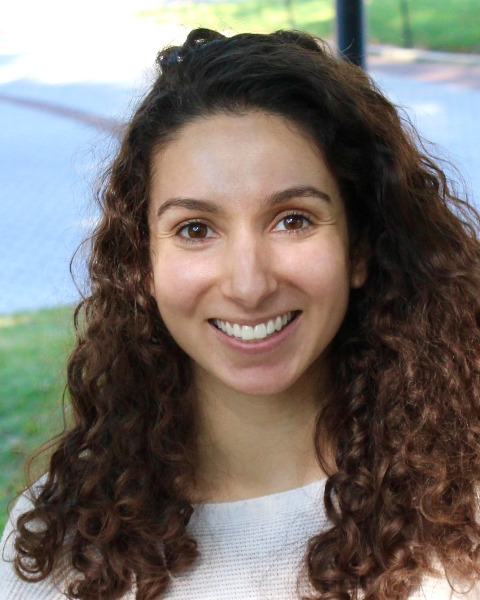Category: Child / Adolescent - Depression
Symposium 13 - The Role of Structural Stigma in Psychopathology Among Marginalized Youth
Level of Familiarity: Basic to Moderate
Recommended Readings: Hatzenbuehler, M. L. (2016). Structural stigma: Research evidence and implications for psychological science. American Psychologist, 71(8), 742., McBride Murry, V., Berkel, C., Gaylord‐Harden, N. K., Copeland‐Linder, N., & Nation, M. (2011). Neighborhood poverty and adolescent development. Journal of Research on adolescence, 21(1), 114-128.,
Last, B. S., Triplett, N. S., McGinty, E. E., & Beidas, R. S. (2023). The social determinants of resilience: A conceptual framework to bridge the psychological and policy research gap. https://psyarxiv.com/jkbu3/
, ,-

Isaac Ahuvia, M.A. (he/him/his)
PhD Student
Stony Brook University
Port Jefferson station, New York -
SM
Sarah McKetta, M.D., Ph.D. (she/her/hers)
Postdoctoral Fellow
Harvard Medical School
Boston, Massachusetts -

Maggi Price, Ph.D. (she/her/hers)
Assistant Professor
Boston College
Boston, Massachusetts -
LJ
Laura Jans, M.A. (she/her/hers)
Undergraduate Student
Stony Brook University
Stony Brook, New York -
YC
Ya-Wen Chang, M.A. (she/her/hers)
Senior Data Analyst
Stony Brook University
PITTSBURGH, Pennsylvania -

Rebecca Mirhashem, M.A. (she/her/hers)
Graduate Student - Clinical Psychology PhD Program
Stony Brook University
Sound Beach, New York -

Kailyn Fan, B.A. (she/her/hers)
Clinical Research Coordinator
McLean Hospital
Belmont, Massachusetts
Chair(s)
Discussant(s)
Presenter(s)
Structural factors, such as cultural norms, institutional practices, community resources, and public policies, have the potential to shape child and adolescent mental health in a number of ways. Among marginalized youth (e.g., LGBTQ+ youth and those with access to fewer community resources), these factors can contribute to psychopathological symptoms, constrain opportunities for support, and even moderate the effectiveness of treatments. While adolescent mental health is typically conceptualized in terms of individual and microsystem factors, new research highlights the importance of examining structural factors as well. Symposium contributors will present on a variety of studies investigating the role of structural factors in the psychopathology of marginalized youth, with the dual goal of (a) informing attendees about how such factors can relate to youth’s symptoms, affect treatment access, and moderate the relationship between mental health support and outcomes, and (b) providing practical resources for those who would like to examine structural variables in their own work. Laura Jans, M.A., will present on structural stigma as a moderator of the relationship between social support and depression symptoms among LGBTQ+ youth. Yama Chang, M.A. will present on structural stigma as a moderator of treatment effects in a single-session intervention for LGBTQ+ teens. Rebecca Mirhashem, M.A., will present on the relationship between perceived social status, actual neighborhood resources, and depression symptoms in a diverse sample of teens. Lastly, Kailyn Fan, B.A., will present on perceived discrimination, neighborhood resources, and treatment access among teens who engage in self-harm. Presenters are joined by co-chairs Isaac Ahuvia, M.A., and Sarah McKetta, Ph.D., who will contextualize this work within existing knowledge on structural factors in mental health, and on mental health in marginalized youth specifically. Maggi Price, Ph.D., will join as a discussant, sharing insights from her own expertise in this area. Attendees will learn about the role of structural factors in youth psychopathology, particularly among marginalized groups. Moreover, attendees will learn how to operationalize and measure structural variables related to adolescent mental health, and will receive access to a public repository of data and statistical code to facilitate their own research on structural factors.Learning Objectives:

